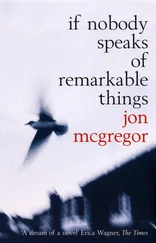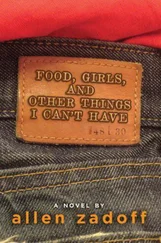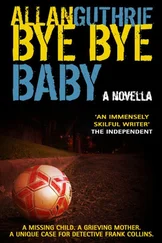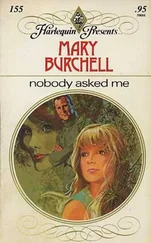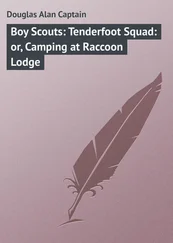I suddenly felt tired.
“Don’t be afraid,” he said to me.
“Why would I be afraid?” I said.
My head started to spin, and I fell. Mike steadied me. He propped me against his shoulder and led me into the living room. A friend helping another friend in distress.
My father was sitting on a chair in the living room, his head slumped in front of him, his legs duct-taped to the legs of the chair.
“That’s funny,” I said.
When you see something absurd, something that is beyond your power to comprehend, your mind interprets it as a joke. It is a natural human defense mechanism. I’ve used it to my advantage many times.
I didn’t know things like that back then. I was young and stupid. I thought we were playing a game.
“It is funny,” Mike said. “Funny and sad.”
“I don’t understand,” I said.
Mike snapped his fingers hard. Once, twice.
My dad’s head shot up. He could not speak. There was tape over his mouth.
“Dad,” I said.
His eyes told the story.
This was no game. It was danger.
Mike grabbed the back of my collar, pulled me close to my father, so close we were almost touching.
“Do you see?” Mike said.
But he wasn’t talking to me.
I was only twelve, but I understood. I might not have been able to put it into words at the time, but I got the idea.
Mike hadn’t brought me to the living room to show me what he’d done to my father; he’d brought me there to show my father what he was going to do to me.
“This is not your son,” Mike told my father. “Not anymore.”
I tried to reach out to my father, but Mike pulled me away.
I was more than tired then. I was falling asleep on my feet.
“Who are you?” I said to Mike.
“I’m your friend,” he said. “I’m Mike.”
“You’re not my friend,” I said.
“You’re a smart kid,” he said.
The way he’d said it, it was like he wasn’t a kid. He was something else, something I didn’t yet know existed.
He led me outside. I had no ability to resist. He put me in the back of a waiting cab. It looked like a cab, but the windows were blacked out.
That was the last time I saw either of my parents.
It was the end of everything.
It was the beginning of everything else.
I STEP ON THE GAS AND FEEL THE ENGINE RESPOND.
I look out the window as mile markers pass in a blur. Buildings in a blur. Faces in a blur. I learned long ago that the world is blurred by speed. The greater the speed, the more the blur.
If I keep moving forward, it will stay that way.
The thought makes me breathe easier.
When I’m ten miles away from the primary zone, I see the Dunkin’ Donuts up ahead.
I pull into the big parking lot, and I leave the sedan in a far corner. It’s a beast. I hate to see it go.
I switch to the car that’s waiting for me here. A Camry, complete with a scratched rear bumper and dented hubcaps. Designed to blend. Boring. Slow.
I take out my iPhone. I slide the bar to the left, up, then quickly down and up on the diagonal. It’s a custom gesture that puts the phone in secure mode.
I open the Games folder, click on the Poker app. Click NEW GAME.
The cards shuffle.
I arrange a hand of ten cards, a phone number’s worth, and I click DEAL.
The computer opens a connection to an anonymous server. My voice is converted to a digital signal, chopped up into packets, sent across the Web, and reassembled.
A complex process that takes no more than a second.
One beep tone, and a woman answers.
“Hello, Mom,” I say.
That’s what I call this woman. Mother. The woman who is in charge of everything. Father runs my assignments. Mother oversees.
Mother and Father. That’s how I refer to the people who manage me. We do it for security purposes. If for some reason our secure line were breached, you’d hear nothing but a mother talking to her son.
Her son.
That’s what she calls me.
“Sweetheart,” the voice on the phone says. She sounds like a person who’s happy to get my call. “I heard about the game from your father.”
“Then you know I won,” I say.
“I do.”
“But there were—complications. Afterward, I mean.”
Silence.
“Four troublemakers,” I say. “Unexpected.”
“To you. Not to me.”
I’m glad she knew about the Chinese spies but troubled by the fact that I didn’t. Could I have missed something?
“Can you tell me anything else about who they were?” I say. “It might help me do a better job next time.”
“I was told they were spectators at the game, and they wandered onto the field. Wrong place, wrong time.”
“So there’s nothing to worry about?”
“Nothing at all,” Mother says.
“I’m relieved,” I say.
Traffic zooms by on the Pike. I look across the road at a giant billboard. A smiling family sits at a kitchen table eating dinner.
Home is where the

is.
That’s what the sign says. The heart has steam wafting from the top.
It makes no sense to me.
I study it for a moment, trying to understand the meaning.
“You won your game,” Mother says. “That’s what matters. Your father and I are very proud of you.”
“Really?”
“Absolutely,” she says.
Proud.
It’s nice to hear. It means I’ve done my job well, completed another assignment. I was even able to adjust to unforeseen circumstances at the end.
I’m good at what I do, and I’m appreciated for it. So why is there a question nagging at me?
When does it end?
That’s what I want to know.
My life is one continual assignment. I move from world to world as I’ve been trained to do, leaving nothing but bodies behind me. With each assignment comes new challenges, new complications, new excitement.
You have a gift. That’s what Mother once told me. She said she saw it in me the first day we met.
I’m lucky that way. How many sixteen-year-olds know who they are or what they’re supposed to be doing in the world?
Yet with all I know and all I’ve been taught, still the question comes:
When does it end?
I think about promises that were made. The lies I was told.
No , I correct myself. Not lies.
Promises that I misunderstood.
I was young then. How could I have known?
MIKE PUT ME IN THE TAXI.
I do not remember the ride.
Mike had drugged me. Drugged me but not killed me. He could have done either. I know that now. It was simply a matter of which syringe he chose. One click is death. Two clicks is temporary coma.
I woke up in a beautiful bedroom with sunlight streaming through the window.
I yawned and stretched, thinking it was vacation, and we were in the house in South Carolina that my father rented for a month every summer.
I looked out the window at a forest I did not recognize.
This wasn’t South Carolina.
Memories flooded back, rising up from my narcotic haze.
My father taped to the chair. The look of terror in his eyes.
I ran to the bedroom door.
It was locked.
I screamed.
I flung myself against it.
I ran to the window, and it, too, was locked.
I tried to crack the glass, but it was unbreakable.
I screamed some more. I flung myself against walls. I destroyed furniture.
Eventually the door opened.
The woman I would later know as Mother stood there calmly looking at me.
“Where are my parents?” I said.
Читать дальше
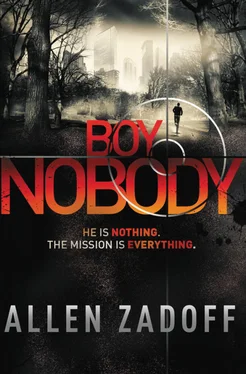
 is.
is.